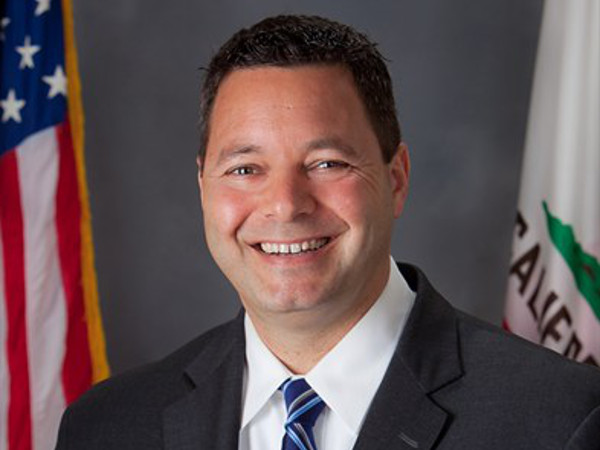If You Don’t Pay Your Bills, It’s Not ‘Hijacking’
 COSTA MESA, Calif. – When it comes to the basics of website and online brand maintenance, it appears some California politicians could use a remedial course. Specifically, someone needs to let these guys know if they want to continue to use any given domain names, it might not be such a bad idea to pay their renewal fees when such come due.
COSTA MESA, Calif. – When it comes to the basics of website and online brand maintenance, it appears some California politicians could use a remedial course. Specifically, someone needs to let these guys know if they want to continue to use any given domain names, it might not be such a bad idea to pay their renewal fees when such come due.
The latest (but not the first) California politician to learn this lesson is Allan Mansoor, a Republican from Costa Mesa whose campaign website became a porn review site — a fact he managed to not notice for quite some time, it seems.
Mansoor originally registered the domain in 2002, when he ran for city council the first time. In a lawsuit Mansoor has filed against the (as-yet unidentified) person who “hijacked” his domain, his lawyers assert Mansoor used the site to “communicate and build relationships with his constituents” throughout his time on the council.
Evidently, Mansoor found some other means to continue communicating and building relationships with people after leaving the council, because at some point he stopped paying for the domain, leading to what always happens when someone stops paying for their domain: They lose title to it.
Shocking, no?
As reported by the Los Angeles Times, the domain was active as a porn review site starting in early 2016, but in the lawsuit Mansoor claims he “didn’t notice the change until last spring, when he prepared to run for city council.”
Whatever damage was done to Mansoor’s political brand in the meantime can’t have been too severe, seeing as how he won the election and is now back on the council, where his previous tenure ran from 2002 to 2010. Mansoor doesn’t see things this way, however, and now he wants his pound of flesh from whoever turned his cyber-namesake into a wannabe TheBestPorn.com.
“Pornography is taboo in our society, and a reasonable person would object to being associated with pornography in the manner depicted,” the lawsuit states, adding whoever is behind the change to the site’s nature has caused Mansoor to “suffer embarrassment, humiliation, shame, mortification and other forms of mental and emotional distress.”
“We’re just trying to get to the bottom of this and trying to get my website back,” Mansoor told the Times, which reported the suit also “seeks unspecified financial damages.”
While the actions of the unnamed defendant may well prove the basis of a successful claim on Mansoor’s part, the vocabulary stickler in me objects to this act being called a “hijacking.”
As it is typically defined, domain hijacking involves changing the registration of a domain that is actively in use and up-to-date in terms of registration payments. What happened to Gary Kremen with Sex.com was domain hijacking; what happened to Mansoor is he stopped paying attention and his bills.
This is not to say what happened here is just fine, or Mansoor has no reason to object or to file a lawsuit against the perpetrator. I’m just saying it was no “hijacking,” whether one is talking about the legal or colloquial definition of the term.
Just as it can’t be considered a “carjacking” if a criminal steals a parked car that is unoccupied at the time of theft, we can’t start calling every inappropriate use of an expired domain name domain hijacking. Doing so muddies the meaning of the term for no purpose — and I doubt inaccurately using it in a court filing will do much to help Mansoor’s legal claims.
It’s also important to note there are protections in place designed to prevent situations like this. The existence of these protections may not impact Mansoor’s legal claims, but in the court of public opinion, they’re still worth weighing as we decide for ourselves just how much of a “victim” we consider Mansoor to be in this situation.
For example, under existing law and registrar policy, there’s a 60-day prohibition on the transfer of domains to a new registrant after any change made to the registration information. During this period, domain holders are notified of the changes made via email, and registrants are explicitly told to contact their registrar if they didn’t request or authorize the changes. When domains are nearing their expiration date on their current registration, notifications are sent to the current domain-holder to let them know it’s time to pay their bill.
Again, the above is probably legally irrelevant when it comes to Mansoor claiming the new domain-holder defamed him by associating his name with pornography, but pity-me hyperbole might not be the best look for a politician who likes to present himself as being “tough” in various other contexts.
Either way, let’s maybe not call it a “hijacking” when the metaphorical airplane is sitting vacant alongside an airstrip because the owner stopped paying his hangar-parking fees three years ago.
One Comment
Leave a Reply
You must be logged in to post a comment.














Pingback: If You Don’t Pay Your Bills, It’s Not ‘Hijacking’ – TripleXers Blog